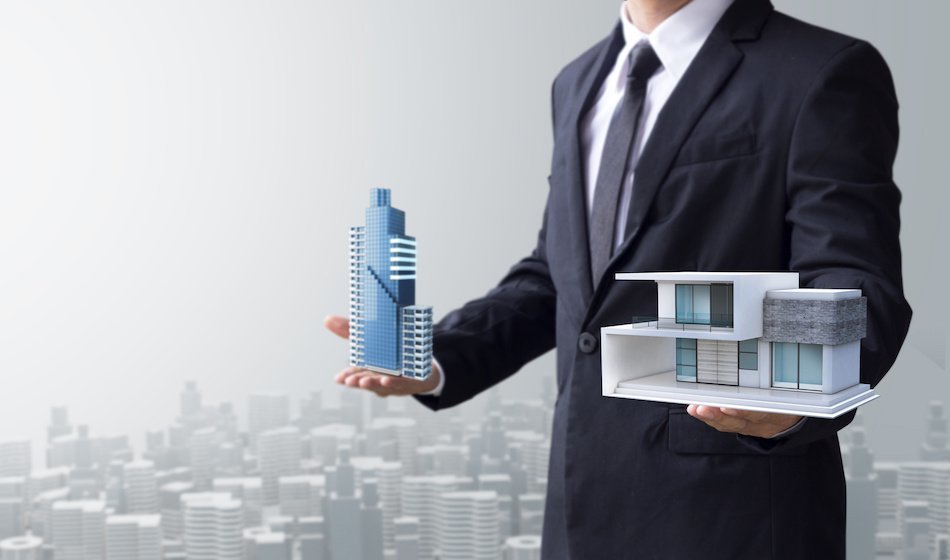The construction industry is one of the most crucial sectors in the global economy, driving the development of infrastructure, housing, and commercial and public spaces. Among the key pillars of this industry is the building developer, whose role is of paramount importance. But who is a building developer, and what responsibilities do they bear? In this blog, we will take a closer look at these questions.
Who is a Real estate developer?
Real estate developers, commonly referred to as building developers, are professionals or companies that play a vital role in transforming ideas into actual buildings. They consider the diverse needs of consumers, design strategies to meet those needs, and manage processes to ensure that buildings are constructed with high quality while remaining cost-effective. Building developers shoulder a variety of responsibilities.
Key Responsibilities of a Building Developer
1. Buying and Selling Properties
Building developers conduct extensive research to identify valuable and suitable properties. They purchase these properties for development and then sell them to the right clients. Developers are responsible for completing the financial and legal requirements for optimal transactions. They also decide on the type of structures suitable for their clients and monitor current trends in the real estate market.
2. Property Transformation
Developers are risk-takers who assist clients in selecting and investing in specific properties. They take on the responsibility of these risks. Moreover, they help clients decide whether a property should be transformed into residential or commercial spaces. Developers implement strategies to convert ordinary buildings into attractive and functional spaces, such as boutiques or shopping centers.
3. Specialization in Development Sectors
Building developers specialize in various aspects of development. They offer services to manage development processes. Unlike some developers who oversee the entire development and construction process, these professionals assist builders in constructing properties in specific ways and investing in distinct areas of land, leading to sustainable returns and a high return on investment (ROI).
4. Obtaining Permits
Acquiring construction permits involves multiple stages that developers must navigate to legitimize their projects. In Iran, for example, these stages include obtaining permits from municipalities, setting up files with engineering organizations, and adhering to zoning requirements. Additionally, permits such as construction licenses, completion certificates, and compliance with environmental standards are mandatory. Developers must collaborate with urban officials, engineers, contractors, and other specialists to ensure all steps are correctly followed.
Core Areas of Expertise for Building Developers
The main areas of specialization for developers include:
- Land acquisition
- Market research
- Permits and approvals
- Project financing and financial analysis
- Building development
- Renovation of existing properties
Key Skills for a Building Developer
To succeed in this field, developers must possess a range of skills and qualities, including:
- Project Management: Ability to plan, schedule, and oversee project execution.
- Financial Analysis: Deep understanding of financial and economic issues for budget management and attracting investment.
- Communication Skills: Strong negotiation and collaboration abilities with investors, engineers, and contractors.
- Regulatory Knowledge: Familiarity with building and urban regulations to advance projects.
- Creativity: Generating ideas to create projects that are both profitable and functional.

The Importance of Developers in the Construction Industry
Building developers are indispensable to the progress of the construction industry. They not only contribute to creating essential infrastructure and spaces but also optimize resources and costs, fostering economic growth and creating job opportunities.
By delivering innovative and high-quality projects, developers enhance living standards and public welfare. Their ability to anticipate future needs and implement sustainable projects can yield long-term positive impacts on the environment.
Challenges Faced by Building Developers
Despite the appeal and impact of the developer’s role, this profession comes with its own set of challenges:
- Market Fluctuations: Changes in land prices, construction materials, and market demand can affect project profitability.
- Legal Issues: Complex laws and regulatory changes can complicate project execution.
- Financial Risks: Managing project costs and securing funding involves inherent risks.
- Team Coordination: Aligning design, execution, and sales teams requires strong management skills.
Conclusion
Building developers are key players in the construction industry, contributing to project management, financing, and team coordination. They not only participate in creating structures and infrastructure essential for societal welfare but also play a role in economic growth and regional development.
Although this profession poses certain challenges, developers equipped with the necessary skills and the ability to forecast and manage risks can execute successful projects and leave a lasting impact on the construction industry.
Spotlight on a Leading Developer: Emarat Pishgam Azarestan
One of the active companies in the field of building development is Emarat Pishgam Azarestan. This organization has entered the construction industry with a fresh and innovative approach. As a building developer, it strives to implement construction projects using novel ideas and strategies, challenging traditional norms and processes.
Amarat draws strength from its roots while continuously seeking to introduce positive and modern transformations to the industry. Its unique perspective as a developer bridges the gap between tradition and modernity.